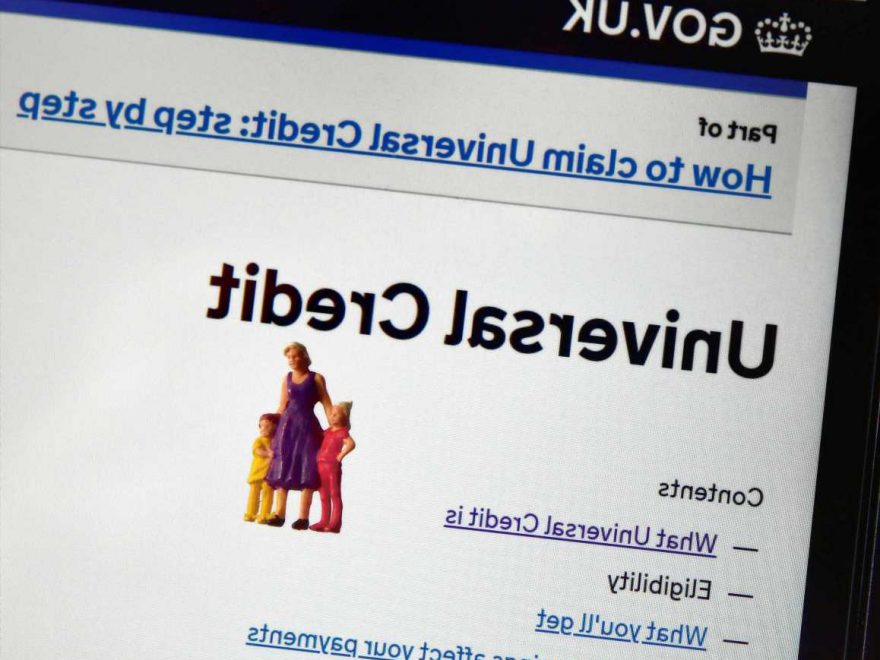HUNDREDS of thousands of self-employed workers who claim Universal Credit will have their payments cut from next month.
The government is reintroducing the Universal Credit minimum income floor in August – which will end a benefits boost for workers.
It was temporarily removed in March 2020 as part of the emergency coronavirus budget.
The suspension was to help self-employed Universal Credit claimants who would have lost income due to self-isolation or restrictions on trading in the pandemic.
While it is suspended, those earning less than the minimum wage have been receiving extra benefits.
But it will be reinstated next month as the government rolls back Covid-related financial support despite the delay to easing lockdown restrictions.
What to do if you have problems claiming Universal Credit
IF you’re experiencing trouble applying for your Universal Credit, or the payments just don’t cover costs, here are your options:
- Apply for an advance – Claimants are able to get some cash within five days rather than waiting weeks for their first payment. But it's a loan which means the repayments will be automatically deducted from your future Universal Credit payout.
- Alternative Payment Arrangements – If you're falling behind on rent, you or your landlord may be able to apply for an APA which will get your payment sent directly to your landlord. You might also be able to change your payments to get them more frequently, or you can split the payments if you're part of a couple.
- Budgeting Advance – You may be able to get help from the Government for emergency household costs of up to £348 if you're single, £464 if you're part of a couple or £812 if you have children. These are only in cases like your cooker breaking down or for help getting a job. You'll have to repay the advance through your regular Universal Credit payments. You'll still have to repay the loan, even if you stop claiming for Universal Credit.
- Cut your Council Tax – You might be able to get a discount on your Council Tax by applying for a Council Tax Reduction. Alternatively, you might be entitled to Discretionary Housing Payments to help cover your rent.
- Foodbanks – If you're really hard up and struggling to buy food and toiletries, you can find your local foodbank who will provide you with help for free. You can find your nearest one on the Trussell Trust website.
According to poverty charity Turn2us, the average cut to a worker's benefit could be around £3,200 a year.
Sara Willcocks, head of external affairs at Turn2us, said: "Self-employed people have been hit hard by the pandemic, and the suspension of the minimum income floor was a small but vital step in helping this group of workers stay afloat.
"But we must remember that the minimum income floor is just another arbitrary benefit cap that breaks the link between need and entitlement.
"Now is not the time to be cutting people's income. We urge the government to keep the minimum income floor suspension, otherwise we risk seeing an increase in poverty this winter."
Furlough is also being tapered off and will come to an end in September.
The government is pushing ahead with plans to end a £20 per week Universal Credit uplift at the end of August.
The Sun has contacted the Department for Work and Pensions for comment.
What is the minimum income floor?
Self-employed workers who claim Universal Credit have their payments based on a prediction of what they could earn – rather than their actual earnings.
This figure is known as the minimum income floor.
It's worked out by multiplying the national minimum wage with the number of hours you agreed to work.
For example, if you're over 23 years old and working 35 hours a week, your minimum income floor would be £1,351.31 a month, according to calculations by Turn2us.
But if you earned less than that in a month, the figure will still be used to work out your Universal Credit payment.
This means your benefits payment will be smaller, and you may have to work more to boost your earnings.
How will it affect your benefits?
Around 450,000 households will be affected by the change, with an average drop in payments of £3,200 a year.
The minimum income floor might apply to you ifbeing self-employed is your main job, you work regularly and expect to make a profit.
But you'll also need to be in the "all work-related requirements group" – this means you’re expected to work or look for work.
However, it is not applied for up to 12 months after you begin self employment – giving you time to set up your business.
You can find out what Universal Credit work-related activity group you're in by checking your account online.
The reintroduction of the minimum income floor will reduce your benefits payments if you're unable to work due to having to self-isolate or if your business is affected by restrictions.
This is because your monthly earnings will likely be below the threshold – but your payments will be based on full-time earnings again.
If you're concerned about the impact this will have on your income, you should speak with your work coach.
They will also be able to help you work out how much money you will lose.
Your work coach should have some discretion to allow you to continue without the minimum income level if they decide you have a strong enough case.
The £20 a week boost to Universal Credit will be axed in September despite MP pleas to protect low income households.
BT has launched a cheap internet and call deal for households on Universal Credit or low incomes.
Here's how to get free travel and childcare when hunting for jobs on Universal Credit.
Source: Read Full Article

